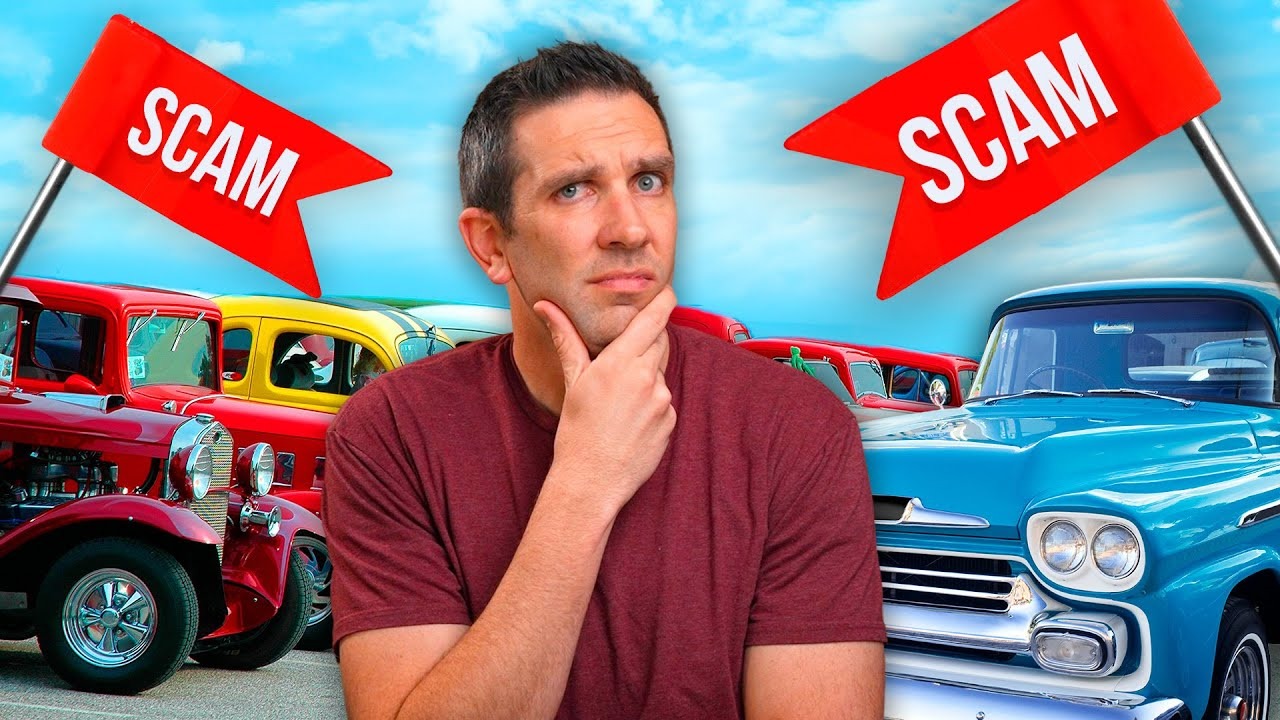Three million five hundred thousand instances of fraud occurred in 2024, resulting in £11.4 billion being stolen from consumers, as reported by the Global Anti-Scam Alliance. An unusual rise in these fraudulent activities targeted used cars and car parts.
With the increasing values of used vehicles and the rising cost of living, many consumers are seeking affordable secondhand options. Scammers are exploiting this situation by promoting fake cars for sale at enticingly low prices.

They often entice potential buyers to pay a rare deposit or the total amount upfront, only to vanish with the money.
Among the vehicles most frequently associated with scams is the used Ford Fiesta, followed by secondhand BMW 1 Series and Volkswagen Transporter vans. moreover, the Fiesta also holds the title of the UK’s most stolen car.
A robust market exists for counterfeit advertisements featuring car parts and accessories, with the average consumer losing £998 to vehicle-related scams.
While you might think that ‘clocking’—the act of rolling back a car’s odometer to inflate its value—was a practice of the past, it has resurfaced. Fraudsters are now tampering with digital odometers to reduce recorded mileage and subsequently charge more for used vehicles.
A concerning trend has emerged with fake QR codes being placed on car park payment boards and public EV charging stations. Instead of leading car owners to the legitimate payment site, these codes redirect them to fraudulent websites that capture their card details, enabling criminals to siphon funds from their bank accounts or credit cards.
Here we summarize the latest car scams and offer advice on how to avoid falling victim to them.
Fake Car Sales Websites
What does this involve? Scammers create fictitious car sales websites for non-existent dealerships, showcasing extremely low-priced vehicles to entice buyers into making purchases under the impression they’re scoring a deal.
How is it executed? Criminals establish car sales portals, often using names similar to authentic used car dealerships, filled with photos and information about real cars being sold elsewhere, but at steep discounts—sometimes half of their usual price.
When potential buyers reach out for further details, they are prompted to pay upfront before ever seeing the vehicle to secure the deal. Once payment is made, the criminals promise to deliver the car, but they finally fail to deliver, rendering themselves unreachable after collecting the funds.
Investigations by What Car? and Car Dealer Magazine uncovered one fraudulent dealership in Scotland listing 79 vehicles for sale, targeting buyers in southern England who were unlikely to travel hundreds of miles to inspect the cars, thus increasing the chances they would pay online and get scammed.
How can you protect yourself from these scams? The age-old adage that if a deal appears too good to be true, it likely is, applies here. Exercise caution if cars are being marketed below their market value, and thoroughly vet the seller before engaging in any transaction.
Pay only a small holding deposit initially, and if possible, inspect the vehicle in person prior to making full payment. If you have reservations about the seller’s credibility, request a photo of the car’s V5 registration document to verify their ownership. Additionally, it’s beneficial to check for online reviews mentioning scams related to the seller.
Also Read: Lesser Car Warranty Scam Calls Assured!
Fake Car Ads on Social Media
What is the trend? There has been a surge in criminals using social media platforms and marketplaces to sell fraudulent items, including cars and car parts.
TSB data reveals that UK buyers are losing over £160,000 daily on Facebook Marketplace, estimating nearly £60 million in fraud on the platform during 2023, with 34% of listings deemed fraudulent.
How do these scams operate? Similar to the counterfeit dealer websites, fraudsters post fake ads for cars at suspiciously low prices on social media.
They may utilize images of authentic vehicles advertised elsewhere, fabricating addresses and other details to give the appearance of legitimacy.
When potential buyers inquire, they receive various excuses preventing them from collecting the car, yet the seller promises delivery after payment is received—an eventuality that never materializes. These online fraudsters may engage with buyers and even present fake documents and information to facilitate their deceit.
What steps can you take to avoid being scammed? If a seller seems reluctant to allow you to visit and inspect the vehicle, exercise caution. Avoid paying for a vehicle upfront; insist on seeing it first.
If distance prevents you from an in-person visit, request a video of the car to confirm its existence. You can also verify that the car’s registration number matches the DVLA’s vehicle information service.
If you suspect a fake ad on Facebook, report it to the Facebook vehicle scam alerts group, which has over 5,500 members sharing information about scams encountered on the platform.
Fake Car Buyers
What should you be aware of? If you advertise your car for sale, you might receive contact from an overseas buyer willing to pay the full asking price or even more.
How does this scam work? Scammers entice car sellers with offers that are unrealistically high. They might instruct you to communicate with a shipping agent on their behalf and suggest payment via a banker’s draft, which can be forged and may be rejected by the bank, potentially leaving you out of pocket.
Once they have possession of your vehicle, they vanish without completing the payment. Such schemes are often referred to as advance-fee frauds.
How can you protect yourself from falling victim to this? If you receive an offer from an international buyer or one proposing more than your asking price, think twice before proceeding. If you suspect the buyer is fraudulent, refrain from responding and notify the website administrator where you listed your car.
Never hand over your car or any related paperwork until you have received full payment as agreed. Accept payments only through secure electronic methods like CHAPS/BACS or direct transfers, such as PayPal, allowing you to confirm receipt of funds in your account before finalizing the sale.
Be cautious of anyone wishing to pay for a high-value car (over £10,000) in cash, as they could be attempting to launder money.
Car Clocking
What is this issue? High-mileage used cars can be worth thousands less than similar vehicles with lower mileage, creating an incentive for fraudsters to alter odometers.
This practice has surged in recent years, particularly due to the popularity of personal contract purchase (PCP) deals that come with mileage limits and penalties for exceeding them. Scammers exploit this by rolling back the mileage of a used car to inflate its price.
Although it’s illegal to sell a car for more than it’s worth by tampering with the odometer, the act of altering the mileage itself is legal. This loophole allows unscrupulous individuals to obtain the necessary computer software for such actions.
How is car clocking accomplished? New vehicles typically feature digital odometers that can be altered by connecting a computer to the vehicle’s electrical system.
Criminals can purchase software to modify odometers, but many opt to hire online advertisers who will come to them and perform the clocking for a fee of around £100.
What precautions can you take against this scam? The easiest way to identify a clocked vehicle is to check whether its condition aligns with the displayed mileage.
If an odometer shows 6,000 miles but the car exhibits worn tires and sagging seats, it may have been tampered with. The most reliable method to confirm mileage is to review the car’s service history.
This can be done by examining its past MOT records on the Government’s website or paying for a history check. Refer to our comprehensive guide on clocking for additional tips on identifying a clocked vehicle.
Car Cloning
What is this practice? Criminals may place the license plate from a legitimate vehicle onto a stolen one to evade detection during criminal acts. They may also use this method to avoid paying fees for congestion zones, parking fines, and speeding tickets.
Another form of car cloning involves replicating the entire identity of a vehicle by altering its vehicle identification number (VIN), usually to conceal a stolen or written-off car so it can be sold for profit.
How does this operation function? Criminals search online for a car that matches the make, model, and color of the one they wish to hide and obtain a copy of the legitimate car’s number plates. This allows the stolen vehicle to be used in illegal activities without easy identification.
If they intend to sell the cloned car, they’ll replace the VIN on the stolen or damaged vehicle with that of the legitimate one. They might alter the plate where the VIN is stamped or sand it down to erase the original VIN before imprinting the new one.
What actions should you take to prevent falling victim to cloning? If you suspect your vehicle has been cloned, notify your local police and report the incident to Action Fraud.
After reporting your vehicle to the authorities, be aware that you might be stopped while driving it, but so will the cloned vehicle, which may lead to the apprehension of those using it unlawfully.
Car Tax Scam Emails
What should you know? The Driver and Vehicle Licensing Agency (DVLA) has been combating scam messages impersonating its department for several years.
At the end of 2020, it released examples of phishing emails following a staggering 531% rise in reports of email scams. Despite this, such scams persist due to their simplicity.
Fraudsters often send emails styled like genuine DVLA communications, tricking individuals into believing their car tax payment has failed or that their vehicle is no longer taxed. A surge in text message-based car tax scams has also been reported.
How do these scams operate? Scammers capitalize on individuals not meticulously checking the legitimacy of emails or texts, resulting in hasty payments without confirming that their bank transaction has indeed failed.

These fraudulent emails often carry convincing subject lines and can manipulate the sender’s address to appear as though the email originates from the DVLA, complete with a gov.uk suffix.
Included in these messages is a link directing victims to the scammer’s bank account, leading them to unwittingly pay the fraudster instead of the DVLA. Some scams also aim to collect bank account and card details to extract additional funds from victims.
What measures can you take to protect yourself? Always scrutinize email addresses for odd characters or spelling errors, and if you suspect a message is fraudulent, reach out to the DVLA directly.
Fake QR Codes
What are they? Scammers have turned to fake QR codes to exploit unsuspecting victims. In an effort to simplify payments at car parks and public EV charging stations, fraudsters have started replacing legitimate QR codes with their own.
How does this operate? Once a victim scans the fake QR code, they are directed to a fraudulent website that requests payment information.
After entering their card details, victims unknowingly grant the criminals access to their bank accounts, allowing them to deplete their funds.
What should you do to stay safe? If you encounter a QR code, always double-check its legitimacy. Refrain from scanning codes you do not recognize and avoid using a QR code that seems suspicious or has not been posted by an authorized party.
Also Read: How to Avoid Common Car Maintenance Scams
How to Report Scams
If you suspect you’ve been a victim of fraud, report the incident to Action Fraud immediately. Additionally, if you believe you’ve encountered a scam while selling or purchasing a vehicle, you can report it to the relevant platforms, such as Facebook or eBay, for further investigation.
Additionally, never click on links provided in unsolicited emails; instead, independently visit the DVLA website to check for any updates or alerts regarding your vehicle.

